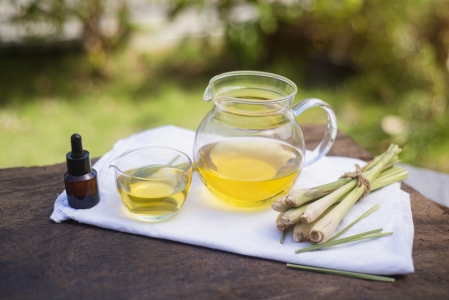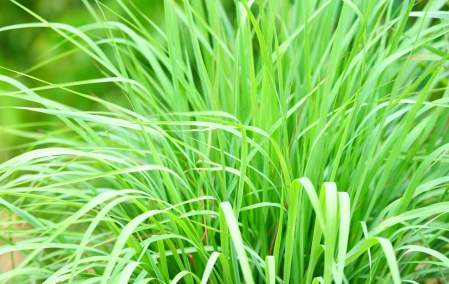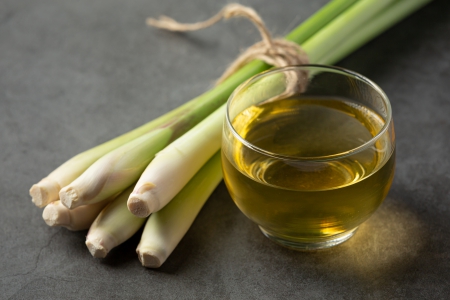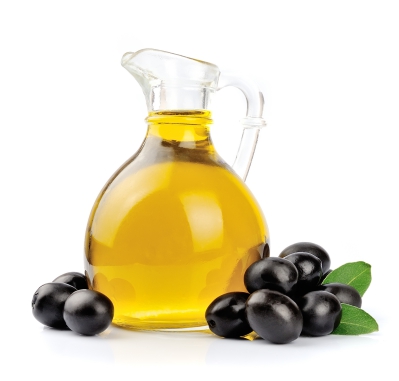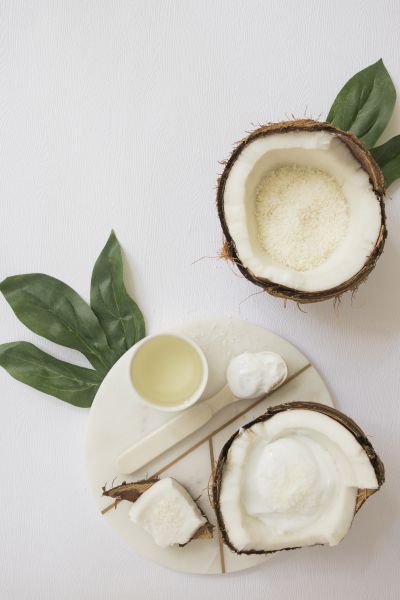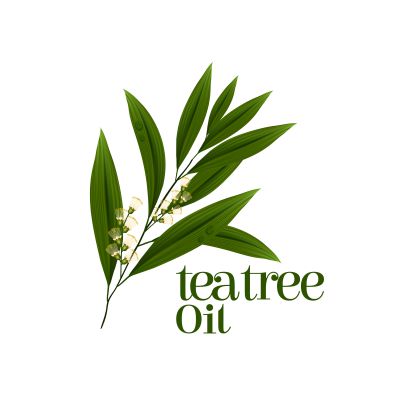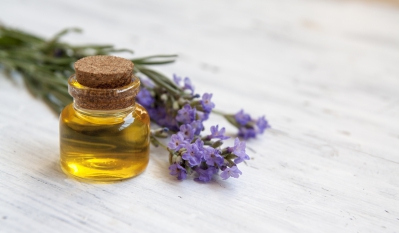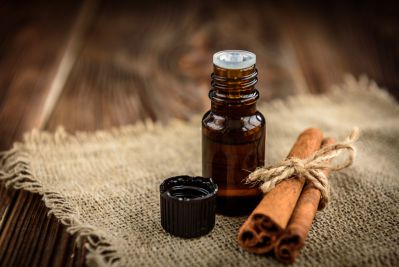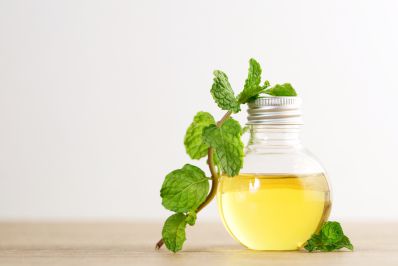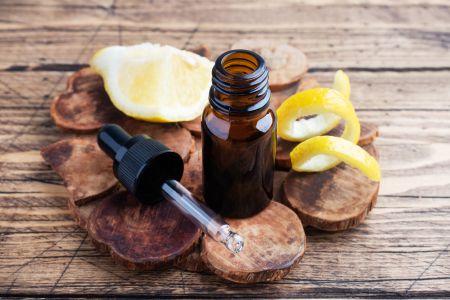Lemongrass oil is an important essential oil extracted from the stalk and leaves of lemongrass plant. It has been extensively used for various medicinal purposes as well as in aromatherapy.
Characteristics
- It is liquid in room temperature
- It is yellow in color
- It has a grassy, sweet and citrus like aeroma
- It has a lemon or lemon mint like taste
Nutritional overview
- It contains crude fat and provides desirable number of calories during its oxidation
- It contains several vitamins like Vitamin A, vitamin C, thiamine, riboflavin, niacin, pantothenic acid, pyridoxine and folic acid
- It also contains various important minerals such as calcium, iron, potassium, magnesium and manganese
- It is packed with numerous biologically active compounds, which include alpha citral, beta citral, terpinol methylheptenone, alcohol, ketones, esrters, aldehydes, geranyl acetate, citronellal and myrecene
Extraction of lemongrass oil
It is generally extracted through hydro-distillation process in laboratory, which is a traditional process used for centuries. It can also be extracted very easily at home.
Biological properties
Antioxidant properties

- Citral and phenolic compounds found in lemongrass oil show potential antioxidant activities
- It helps to protect the body from the oxidative damages caused by free radicals as it helps to reduce their concentration
Anti-inflammatory properties
- Inflammation is considered as one of the major causative factors for developing several diseases (like cardiovascular disease, arthritis etc.). Lemongrass oil helps to inhibit the prevalence of inflammation by reducing cytokine production within body and hence helps to reduce the susceptibility of developing chronic diseases
- Citral found in lemongrass oil is considered as the main compound exerts anti-inflammatory activities
Antibacterial properties
- It helps to prevent the growth of bacteria within host that decreases the occurrence of infectious diseases
- It is very effective against drug resistant bacteria
- It has seen that lemongrass oil is very helpful for preventing various diseases caused by bacteria like pneumonia, dermal infections and gastrointestinal infections
Antifungal properties
- It helps to prevent the growth of fungus (yeast and molds) within body
- Using lemongrass oil is very effective for reducing the risk of developing some fungal infections like ringworm infection, athlete’s foot and jock itch
Anti-carcinogenic properties
- It has strong anti-carcinogenic property that helps to kill carcinogenic cells of the body without affecting other healthy cells
- The most important substance present in lemongrass oil is citral that helps to suppress the growth of malignant cell as well as tumor cell
- It is very effective for inhibiting the growth of hepatic malignant cell at initial phase
- It also helps to reduce the prevalence of breast cancers by inducing apoptosis

Health benefits
Role on digestive system
- It helps in digestion
- Its antibacterial activities are responsible for preventing bacterial infestation such as E. coli infestation, Helicobactor pylori infestation within gastrointestinal tract, hence helps to reduce the prevalence of ulceration
- It helps to slow diarrhea and hence reduces the risk of dehydration
- Its anti-inflammatory activities are also related with reducing the prevalence of nausea, stomach cramp, constipation and ulcerative colitis
Role on mental health
- It has a calming effect especially on muscle and nerve, which helps to reduce stress and encourage healthy sleeping
- It helps to reduce hypertension, which is another important factor responsible for reducing stress
- It stimulates the secretion of serotonin that helps to reduce anxiety and improves mood
Role on respiratory system

- It has been used for centuries in ayurveda as an effective preventive measure for cold and cough
- Vitamin C component of lemongrass oil is the main constituent responsible for promoting respiratory health and it also helps to reduce the prevalence of several respiratory disorders like bronchial asthma, nasal blockage etc.
Role on nervous system
- It helps to promote the functionality of nervous system
- It helps to increase the secretion of serotonin that helps to improve memory as well as cognitive ability
- It is very effective for combating nervousness, convulsions and vertigo
- It also helps to reduce the prevalence of Alzheimer’s disease
Role on immunity
- It is directly associated with strengthening the defense mechanism of body and decreases overall morbidity rate
- It also helps to improve the resistance power of body and reduces the susceptibility of infectious diseases
Role on skin
- Its astringent quality and antiseptic activities are accountable for enhancing skin health
- It helps to increase the strength of skin tissue
- It acts as an effective cleanser (especially for oily skin)
- It helps to treat acne
Role on cellular health
- Potassium and folic acid components of lemongrass oil are accountable for facilitating DNA synthesis hence promotes cell division
- It helps to protect every cell of the body from free radical induced oxidative damages
- It is also associated with improving the function of thymus gland that increases WBC production

Role on hair
- It helps to reduce hair loss
- It significantly reduces dandruff if applied in scalp with shampoo or conditioner
- It helps to prevent hair shedding
Role on detoxification
- It is associated with enhancing the flushing of toxins from body that helps to clean the entire system
- It helps to increase the rate and quantity of urination that helps to eliminate waste product from body
- It also helps to improve renal function, which is related with enhancing blood purification
- It plays significant role in reducing the concentration of uric acid (nitrogenous waste product)
- It helps to improve hepatic function that facilitates detoxification process
Therapeutic application
- It is used to reduce total cholesterol concentration of body and for maintaining normal lipid profile as it has anti-hypercholesterolemic and hypolipidemic activities
- It is very useful for promoting cardiac health
- Its iron and folic acid contents are responsible for preventing anaemia
- It is used for reducing fever as it has diaphoretic as well as anti-pyretic effects
- It is also used for relieving muscle pain, pain of arthritis, spasm and headache
- Citral component of lemongrass oil is responsible for improving glucose tolerance hence it helps to reduce the prevalence of diabetes mellitus (type 2)
- It is also used for treating edema
- It is associated with increasing the metabolic rate of body and helps to decrease fat accumulation hence it is used as an effective preventive measure for obesity
- It has galactagogic activities thus used by lactating women for enhancing their milk secretion
- It is also used for improving menstrual flow and helps to reduce menstrual cramp as well
- It is widely used by HIV infected patients as it helps to reduce the load of HIV virus in body with a great increase in CD4 count

Risk factors
- It cannot be applied directly to the skin as it may cause allergic reaction, skin irritation or may develop skin rashes thus it is better to use the oil in diluted form
- Pregnant women should avoid its usage as it may cause miscarriage
- Children should also avoid its usage
- Excessive inhalation of lemongrass oil may cause lung disorders
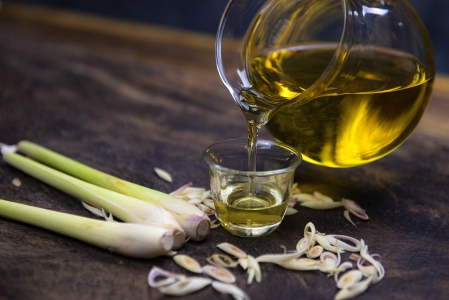

Source:
Adukwu, E.C., Bowles, M., Edwards-Jones, V. and Bone, H., 2016. Antimicrobial activity, cytotoxicity and chemical analysis of lemongrass essential oil (Cymbopogon flexuosus) and pure citral. Applied microbiology and biotechnology, 100(22), pp.9619-9627.
Aung, O., Htaik, K.M.M. and Than, W.W., Phytochemical Constituents and Extraction of Essential Oil from Cymbopogon citratus Stapf.(Lemongrass) and Its Antimicrobial Activity.
Battaglia, S., 2019. Lemongrass.
de Groot, A. and Schmidt, E., 2016. Essential oils, part V: peppermint oil, lavender oil, and lemongrass oil. Dermatitis, 27(6), pp.325-332.
Devi, B.V., Devi, R.G. and Priya, A.J., 2018. Effect of lemongrass oil on body pain. Drug Invention Today, 10(10).
Ranjah, M.A., 2019. Lemongrass: a useful ingredient for functional foods. International Journal of Food and Allied Sciences, 4(2), pp.11-19.
Singh, S., Singh, B.R., Kumar, K., Rani, P., Kumar, T. and Arya, A.M., 2018. Medico-Nutritional facts of lemongrass (Cymbopogon citrates): A review. Annals of Horticulture, 11(2), pp.186-194.
Widelska, G., Stelmasiewicz, M., Skalicka-Woźniak, K., Oniszczuk, A. and Ludwiczuk, A., 2018. Antioxidant activity of lemongrass essential oil and its constituents. Facta Universitatis, Series Physics, Chemistry and Technology, 16(1), p.132.
